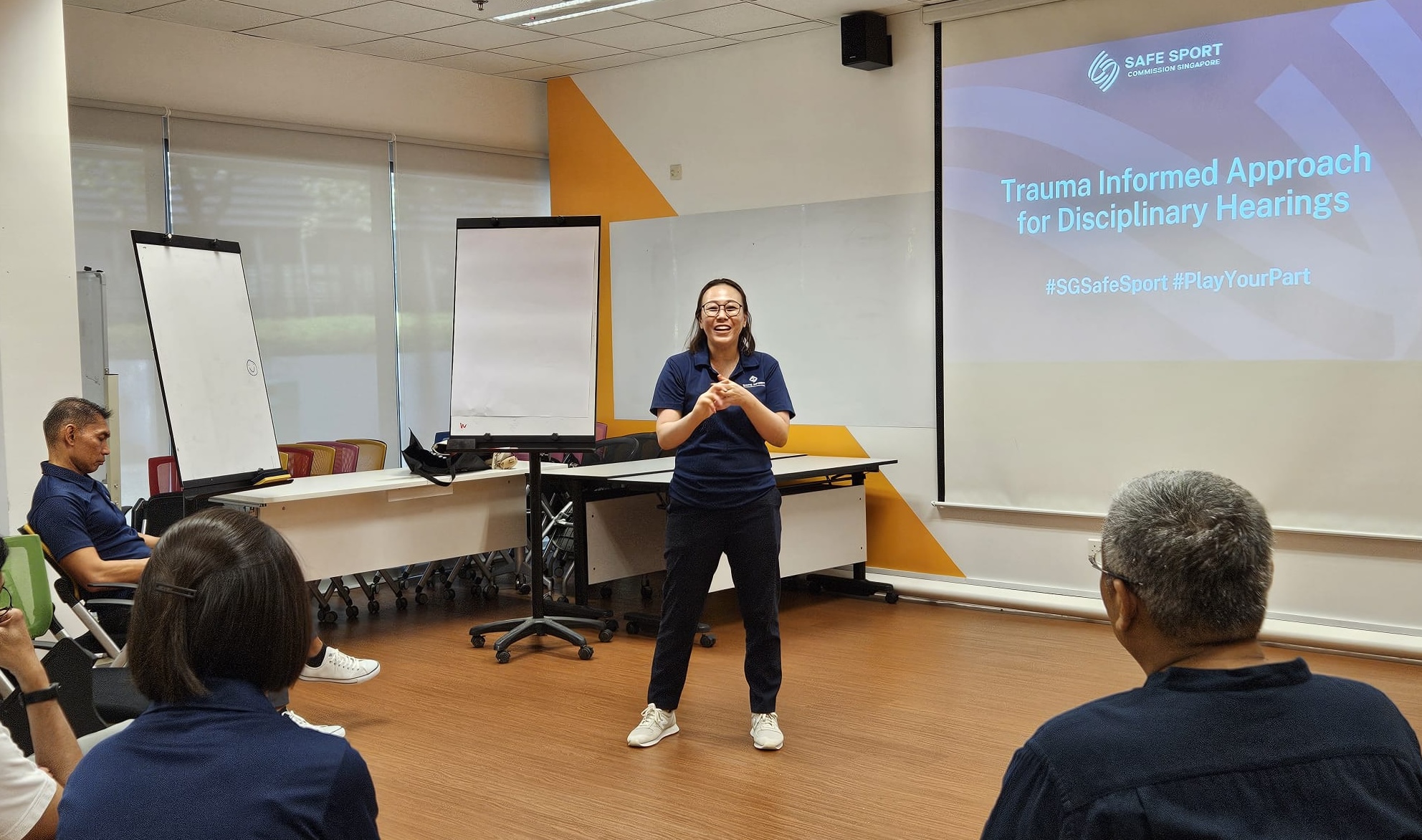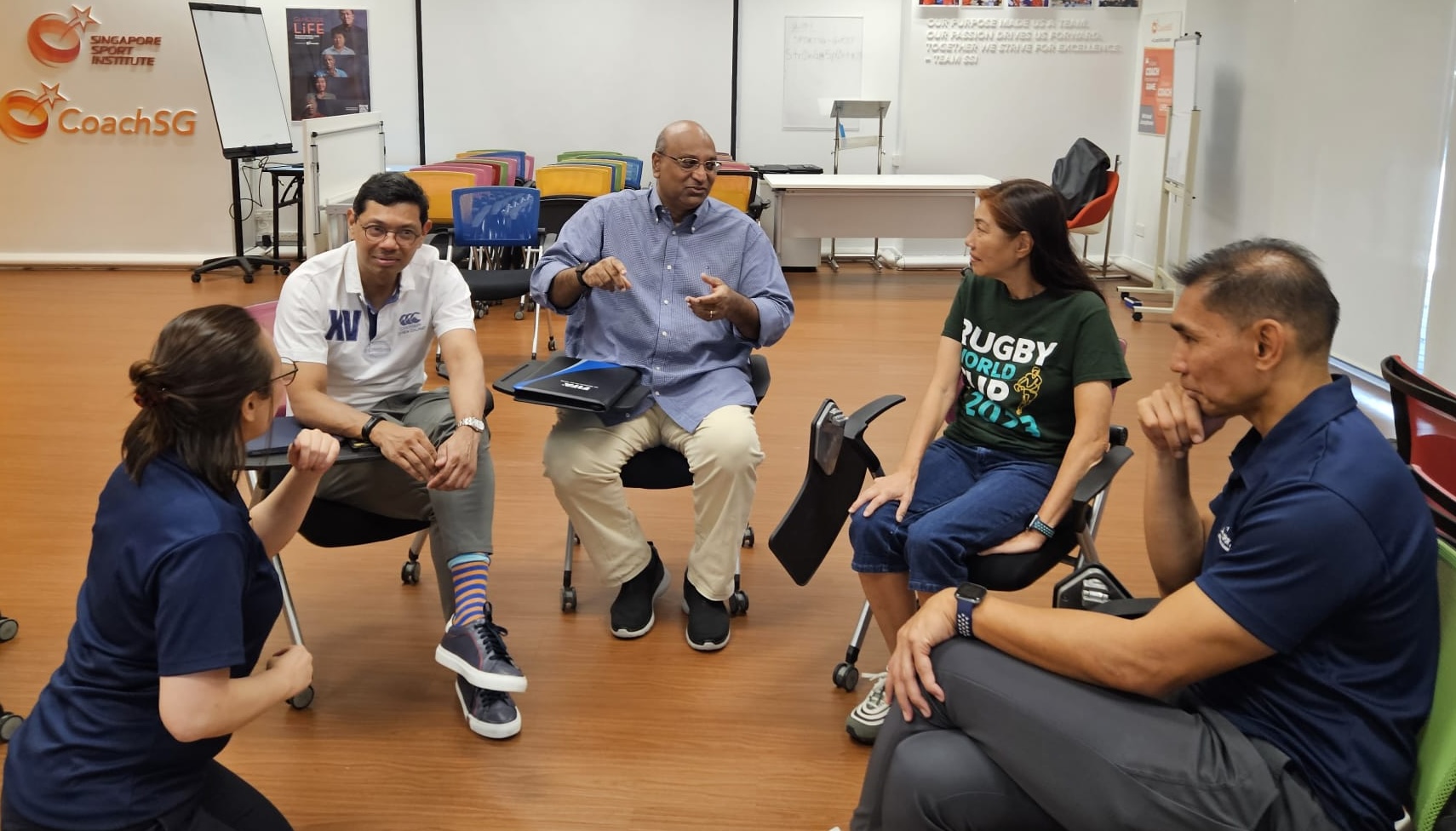Trauma Informed Approach for Disciplinary Hearings
The Safe Sport’s Disciplinary Panel Members (DP Members) attended a session on Trauma Informed Approach for Disciplinary Hearings led by Jolie Tan, a former psychologist from the Clinical and Forensic Psychological Services Branch of the Ministry of Social and Family Development. Jolie, who has conducted numerous trainings on topics related to trauma recovery, has worked with children and youth on behavioural management and self-injury.

What does it mean to be trauma informed?
The group was taken on a journey that involved recognising signs of trauma, learning how to respond sensitively to support trauma recovery and crafting safe spaces for affected parties, witnesses and respondents during hearings. With Jolie’s guidance, the DP Members engaged in the following exercises:
-
recognising the nuanced signs of trauma
-
developing active listening skills
-
asking questions in a trauma-informed manner
DP Members also learnt of the 3 basic survival responses to threat; fight, flight, freeze – which would influence how individuals react when faced with unpleasant, unwanted or stressful situations. Some common myths related to freezing instead of showing signs of resistance or trying to escape during a traumatic incident were discussed and case studies were analysed.

Additionally, DP Members learnt about the traumatic stress reactions that encompass a wide range of responses:
-
physiological (e.g. being easily fatigued, increased heart rate or breathing rate)
-
emotional (e.g. being emotionally numb or being more emotional than normal)
-
psychological (e.g. self-blame, having frequent nightmares)
-
behavioural (e.g. finding it hard to function at work or school, engaging in unhealthy ways of coping)
By understanding these common responses, DP Members were better able to understand the reactions of those affected in the context of the cases, particularly in relation to the time it takes an affected party to report an incident or often, to even come to the realisation that they are the subject of abuse.
"The session was transformative and we picked up knowledge on how to better create a safe and trauma-informed space during hearings"
Lively group discussions were sparked with insights and perspectives exchanged. The message that was driven home was that there is no fixed way for coping with trauma, but it is important to be mindful of the impact of trauma.

